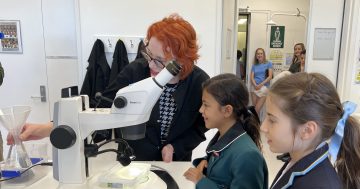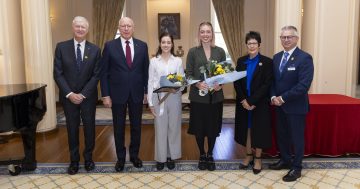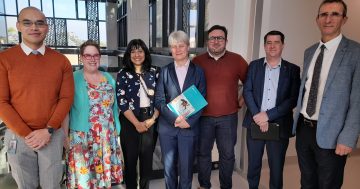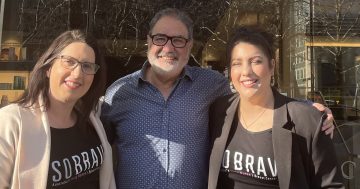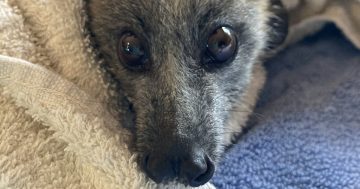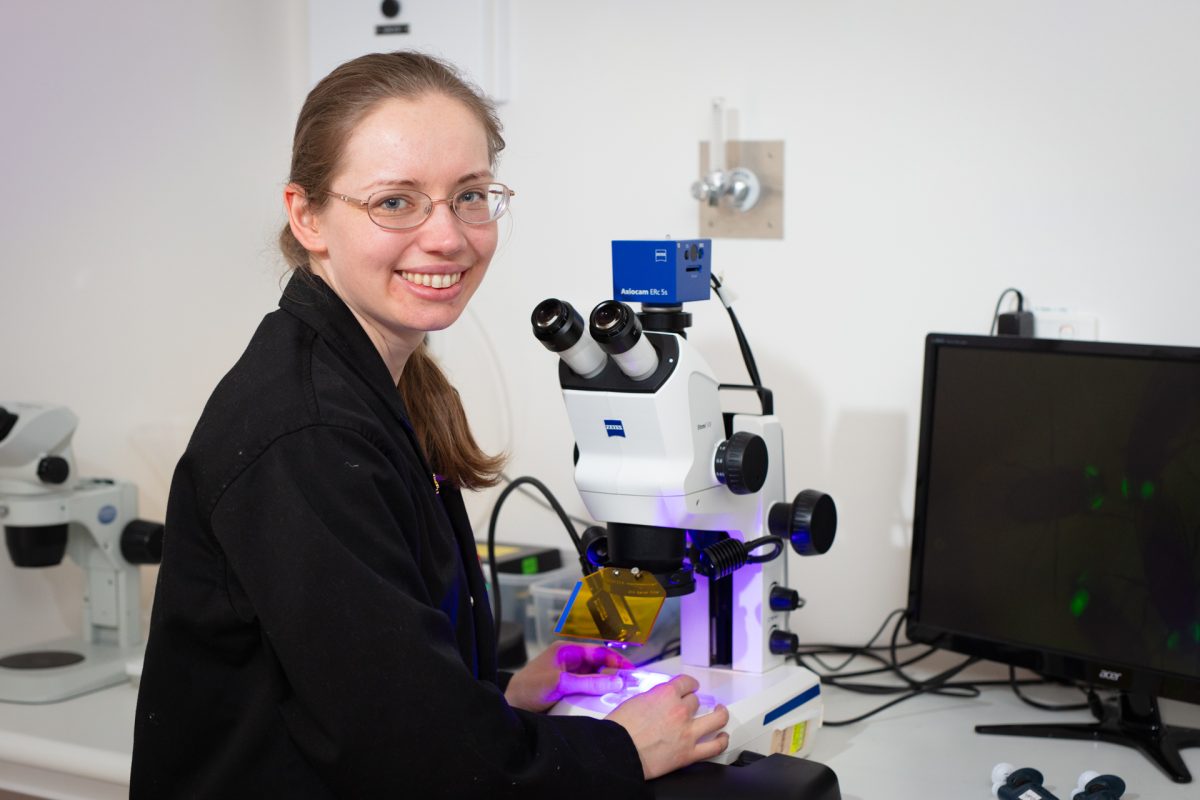
Dr Olga Zaytseva’s research into brain cancer has just received much-needed funding from the Cancer Council. Photo: Thomas Lucraft.
We go to great lengths to stop fruit flies spreading across our states and territories but there’s one place the insects will always be welcome – Dr Olga Zaytseva’s lab.
The researcher’s findings have revealed the natural enemy of one of our favourite food groups could be the key to better understanding a much greater foe – brain cancer.
Brain cancer receives relatively little research funding compared to other cancer types and remains one of the least understood cancers.
While over the past 30 years survival rates for other types of cancer have steadily improved, the five-year relative survival rate for brain cancer has remained stubbornly low at about 23 per cent.
“There are cancers for which we’ve come a long way in terms of screening, prevention and new treatments but unfortunately brain cancer hasn’t caught up,” Dr Zaytseva says.
“The brain is enigmatic, it’s quite different to other parts of the body in the way it works and of course, it’s so very precious. So there have been unique challenges associated with brain cancer research.
“We hope some of our models can be used to overcome some of those challenges and that we can in fact learn more about what causes these cancers, and ultimately develop more effective therapies. Because right now, there is only a handful of therapies available to these patients and they’re not doing the best job.”
Because there is an overlap in how cancerous cells develop in fly brains and those of humans, scientists are able to dissect the brains of these minuscule bugs and even those of their larvae to glean what they believe to be critical information.
“Using flies, we can perform complex analyses that wouldn’t be possible in other cancer models,” Dr Zaytseva says.
“There have been genetic mutations identified in brain cancer that we don’t yet fully understand. If we can mimic those same genetic mutations in fly cells we can learn a lot about how they cause the cells to go awry and initiate cancer.
“This means once we have introduced a mutation from human cancer into the brains of these cells, we can observe how the cells change on a holistic level.”
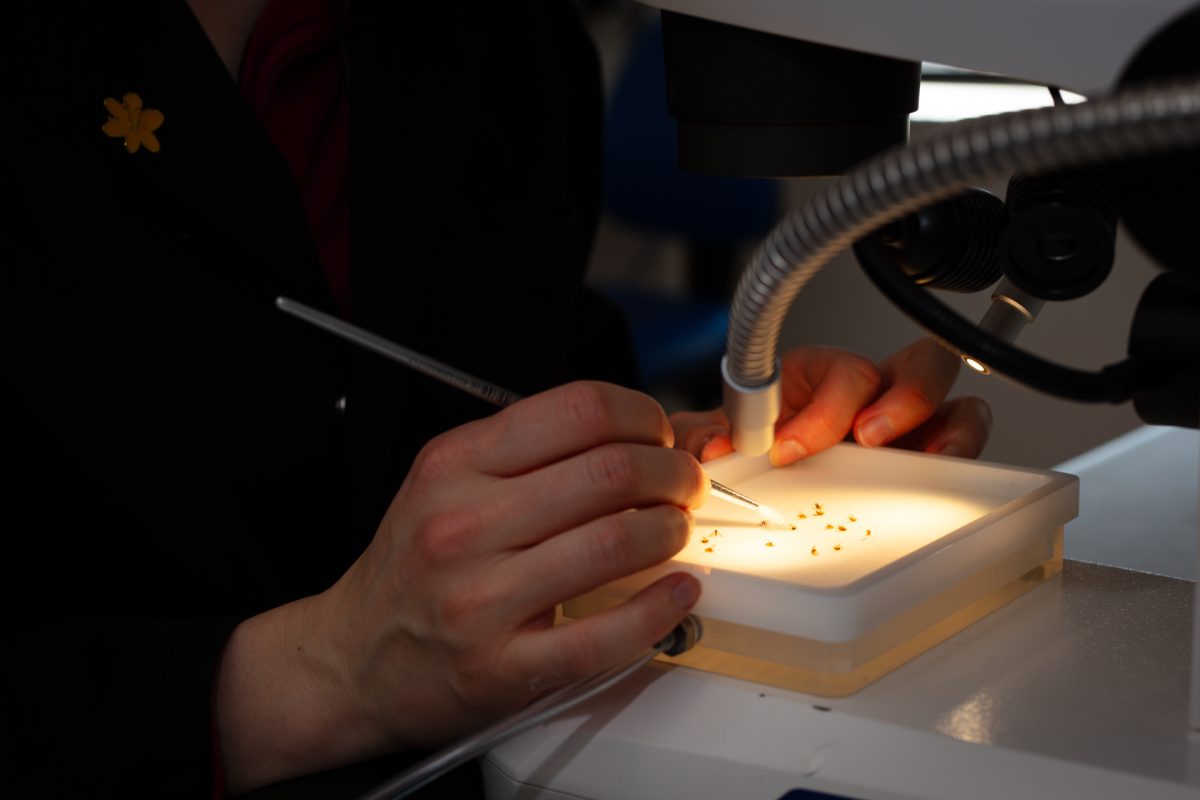
Using flies, Dr Zaytseva can perform complex analyses that aren’t possible in other cancer models. Photo: Thomas Lucraft.
The lab has already had some breakthroughs. It has observed that certain mutations seen in brain cancer accelerate the growth rate of fly cells, which in turn shows the importance of these genes in understanding cancerous cells in humans.
“We’re also coming to appreciate that cells need to communicate in order to thrive and the way they talk to each other in cancer is really important,” Dr Zaytseva says.
“It’s going to take a lot more work to understand what’s going on in the brain when cancer cells form, for example how they can change normal cells around them to help themselves or, how some normal cells might actually contribute to their growth.
“What if we learn exactly what makes them turn cancerous? We could come up with ways to hopefully target these particular genetic signatures in the cells.”
The lab initially started looking into development more generally but learned that the overlap between how embryos and cancers developed and grew provided an extraordinary opportunity.
“It’s a powerful driver for us – not only learning more about how cells work but understanding how that research might help people with diseases,” Dr Zaytseva says.
But helpful as it is, the research will only go so far with flies. Fortunately, funding from the Cancer Council ACT is allowing Dr Zaytseva and her team to take vital next steps in their research.
“We’re very fortunate to be awarded a grant to support a new direction for our research, which is actually to use human models to extend our studies from the fruit fly,” she says. “This is a very exciting opportunity to make a difference in the fight against this disease.”
The Cancer Council ACT’s ability to fund life-saving research comes in no small part from its various fundraising efforts including the upcoming Daffodil Day.
Daffodil Day takes place on 31 August 2023 – register here to fundraise your own way or at work or to donate, and help make a significant impact on the lives of people affected by cancer in the ACT.
Fundraising daffodils will also be sold from 9:30 am to 4 pm at South Point Tuggeranong, Westfield Woden, Gungahlin Marketplace, Cooleman Court, Majura Shopping Centre and Canberra Centre.













